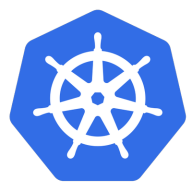

Find out in this report how the two Container Management solutions compare in terms of features, pricing, service and support, easy of deployment, and ROI.
| Product | Market Share (%) |
|---|---|
| Kubernetes | 6.2% |
| Red Hat OpenShift | 2.9% |
| Other | 90.9% |


| Company Size | Count |
|---|---|
| Small Business | 25 |
| Midsize Enterprise | 9 |
| Large Enterprise | 47 |
| Company Size | Count |
|---|---|
| Small Business | 17 |
| Midsize Enterprise | 4 |
| Large Enterprise | 40 |
Kubernetes (K8s) is an open-source system for automating deployment, scaling, and management of containerized applications.
It groups containers that make up an application into logical units for easy management and discovery. Kubernetes builds upon 15 years of experience of running production workloads at Google, combined with best-of-breed ideas and practices from the community.
Red Hat OpenShift offers a robust, scalable platform with strong security and automation, suitable for container orchestration, application deployment, and microservices architecture.
Designed to modernize applications by transitioning from legacy systems to cloud-native environments, Red Hat OpenShift provides powerful CI/CD integration and Kubernetes compatibility. Its security features, multi-cloud support, and source-to-image functionality enhance deployment flexibility. While the GUI offers user-friendly navigation, users benefit from its cloud-agnostic nature and efficient lifecycle management. However, improvements are needed in documentation, configuration complexity, and integration with third-party platforms. Pricing and high resource demands can also be challenging for wider adoption.
What are the key features of Red Hat OpenShift?Red Hat OpenShift is strategically implemented for diverse industries focusing on container orchestration and application modernization. Organizations leverage it for migrating applications to cloud-native environments and managing CI/CD pipelines. Its functionality facilitates efficient resource management and microservices architecture adoption, supporting enterprise-level DevOps practices. Users employ it across cloud and on-premises platforms to drive performance improvements.
We monitor all Container Management reviews to prevent fraudulent reviews and keep review quality high. We do not post reviews by company employees or direct competitors. We validate each review for authenticity via cross-reference with LinkedIn, and personal follow-up with the reviewer when necessary.